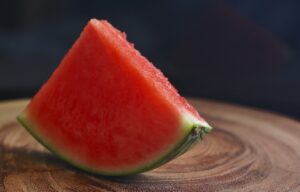Can Rabbits Eat Melon? – All The Information Pet Owners Need to Know
Like most people, you probably assume that rabbits can eat watermelon. But as it turns out, there’s more to the story than that! In this article, we’ll explore how watermelon can benefit your bunny – and why you should add this fruit to your regular diet.
Can Rabbits Eat Melon?
Melon is a sweet and refreshing fruit, often in salads and served with other fruits as part of a fruit platter. This article will investigate the answer to this question and provide some important considerations for rabbit owners regarding the feeding of melons.
Nutritional Benefits of Feeding Melon to Rabbits
Melons are an excellent source of vitamin C. They have other beneficial nutrients such as dietary fibre, potassium, manganese and vitamins A, B6, and K. Eating melons can help improve your rabbit’s digestion and overall health. The high water content within the melon helps keep your bunny hydrated while providing additional essential nutrients.
Types of Melon Suitable for Rabbits


Several melons can be safely given to rabbits: cantaloupe, honeydew, watermelon and muskmelon. It is important to ensure that you only feed ripe melons, as unripe ones are not suitable for rabbits due to the presence of toxins that could cause digestive issues or even poisoning if ingested in large amounts. You should wash the melon thoroughly before offering them to your pet.
How Much Melon Should You Feed Your Rabbit?


You should never feed rabbits too much fruit as it can provide too much sugar, leading to obesity and other associated health problems such as urinary tract infections or bladder stones. Generally, offering up to one-quarter cup (about 50g) per day is safe for an adult rabbit. Baby bunnies should not be given any fruit until they reach six months old; at this stage, they can be offered small amounts until adulthood.
Preparation Tips for Feeding Melon to Rabbits
Remove the seeds from the melon before feeding it to your bunny, as these contain trace amounts of cyanide which could cause stomach upset if eaten in large quantities. The fleshy parts should then be cut into cubes or slices before being offered as finger food for your pet bunny! Also, remove any pith from the rinds; this layer contains toxic compounds when consumed by animals like rabbits and guinea pigs.
Additional Considerations When Feeding Melons To Rabbits
Benefits:
- Source of Vitamin C & Other Nutrients: Eating melon can help improve your rabbit’s digestion and overall health by providing essential nutrients such as vitamin C, dietary fibre, potassium, manganese, vitamins A, B6 & K, plus additional sources of hydration because of its high water content.
- Low Sugar Content: Unlike other fruits like bananas or apples, which might contain more sugar than necessary for a healthy diet; melons have lower sugar levels making them suitable snacks even for bunnies who already tend towards obesity
Drawbacks:
- Unripe Fruit Toxicity Risk: Unripe fruits contain toxins which could cause digestive issues or poisoning if ingested in large amounts, so only feed ripe melons.
- Possible Bloat Risk: Overfeeding any fruit could lead to bloat in certain animals like rabbits, so always monitor portion sizes closely when offering up this type of snack
Conclusion
Overall, fresh ripe melons make for an excellent snack for bunnies, providing hydration & nutritional needs in one delicious package!
If you’re looking for an easy and affordable way to ensure your pet rabbit is always protected, look no further than furrr.co.uk! Our comprehensive pet insurance plans can provide your furry friend the coverage they need in case of any unexpected medical expenses or other expensive surprises. So don’t wait – get peace of mind today and insure your rabbit with furrr.co.uk!










